Paul Simon: “People have tried to cop that bass solo, but it’s physically impossible” – how engineer Roy Halee created the iconic bass break on Call Me Al
Bakithi Kumalo: “Listening back, I didn’t know what happened – I thought it was from God, you know?”
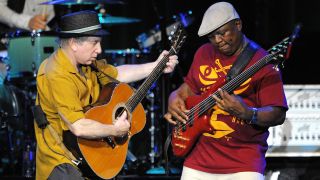
Three minutes and 44 seconds into Paul Simon’s You Can Call Me Al is a two-bar bass guitar solo that has confounded as many bassists as it has inspired. “That was my idea,” said Bakithi Kumalo of the wildly descending lick. “We were recording that song on my birthday, and there was space to fill, so Paul said, ‘Go ahead, Bakithi, do what you like.’ I just played – and they loved it. It was one take. Listening back, I didn’t know what happened; I thought it was from God, you know? I never planned it.”
Now for the tricky part: the second part of the solo is actually the first bar played backwards. Engineer Roy Halee simply flipped the tape over and spliced the two parts together. “People have tried to cop those licks, said Simon. “But it’s physically impossible.”
Throughout the ‘70s and early ‘80s, Kumalo cemented his reputation as one of South Africa’s top session bassists. Along with steady studio work, he often accompanied international artists on the South African legs of their world tours.
It was 1985 when Paul Simon travelled to Johannesburg in search of musicians to help him with his adventurous new project, the multi-platinum Graceland . One of the people he contacted was producer Hendrick Lebone. “I had played a lot of traditional South African music with Hendrick,” said Kumalo in the April '96 issue of BP. “He knew I was a good bass player, so when Paul said he was looking for musicians, Hendrick called me up.”
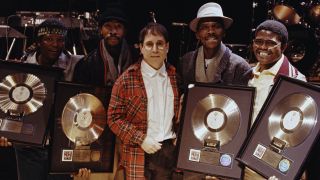
Kumalo and Simon hit it off from their first meeting. “I brought in my fretless, and we started to play some grooves, and it just happened,” said Kumalo. “I was tense at first – you know, I was working with Paul Simon! But Paul loved everything I played. Then he took me to New York to finish the tracks. All I could think about was meeting Marcus Miller and Stanley Clarke! I was really ready to come to the United States. I started to listen to British radio for an hour a day to get my English together.”
After they finished recording Graceland , Simon and company embarked on an international tour, calling at some of the biggest venues Kumalo had ever played. Of course, Simon wasn’t the least bit worried. “As a bassist in a live setting Bakithi is extraordinary. He’s a very good analyst of rhythm; he lays down a very fundamental groove, but there’s always space for the singer.”
Kumalo, on the other hand, was terrified. “It was scary! The first gig we played was in Germany, and I’d never played for so many people. I couldn’t face the audience; I just felt like crying. I was praying and meditating before the show: ‘Please, I don’t want to make mistakes!’ And when we played You Can Call Me Al , the people knew the bass solo was coming; I could see they were saying, ‘Is this the bass player on the record? We’ll find out when that solo comes!’ When it was close, they started to watch me. And, man – when I played that solo, I just knocked everybody down! After that, the other shows were like a piece of cake.”

Get The Pick Newsletter
All the latest guitar news, interviews, lessons, reviews, deals and more, direct to your inbox!
Kumalo’s played a Washburn B-40 fretless bass on Graceland . “It was the cheapest bass in the store because nobody wanted to play it. It’s very old. I think it was the first Washburn fretless, and I only bought it because I could afford it.”
Graceland is available to buy and stream .
Thank you for reading 5 articles this month**
Join now for unlimited access
US pricing $3.99 per month or $39.00 per year
UK pricing £2.99 per month or £29.00 per year
Europe pricing €3.49 per month or €34.00 per year
*Read 5 free articles per month without a subscription
Prices from £2.99/$3.99/€3.49
“Designed for exceptional performance, stunning aesthetics and versatile tones”: Harley Benton has launched a new series of Fender-inspired bass guitars – and prices start from just $207
“Ozzy was hoping to finish it all off. I’d absolutely love to do it”: Plans for one final Black Sabbath show are afoot – and Ozzy Osbourne and Geezer Butler are already onboard
“A time capsule from Prince’s most recognizable era”: Prince’s Cloud 3, which went for less than $10,000 in 2005, sells at auction for $900,000 more – and breaks a world record
Most Popular
Bakithi Kumalo
Concerts and tour dates, about bakithi kumalo.
- Accessories
- Transcriptions
- Terms of Use

Sign up for the Bass Magazine Newsletter
Stay in the loop for the latest news on all things low end delivered right to your inbox.
Bakithi Kumalo: World View
The renown bassist's fantastic journey inspires 'What You Hear Is What You See'
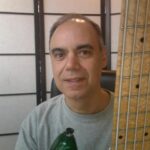
If you're enjoying this story, please support Bass Magazine by making a donation! You won't find this content anywhere else, and we have so much more coming soon. A donation will help us continue to bring the future of bass to you, our beloved readers. Thank you!

Lenny Kravitz: Straight Cold Player

Meshell Ndegeocello Announces New Album ‘No More Water: The Gospel Of James Baldwin’

Duff McKagan Announces US Tour Dates

Mike Dirnt Joins Members of The Killers and Jane’s Addiction For Rock N’ Roll Fantasy Camp

Brian Cook and SUMAC Announce New Album ‘The Healer’

The Police Celebrate 40 Years of ‘Synchronicity’ With Deluxe Box Set
- Next »

Shopping Cart
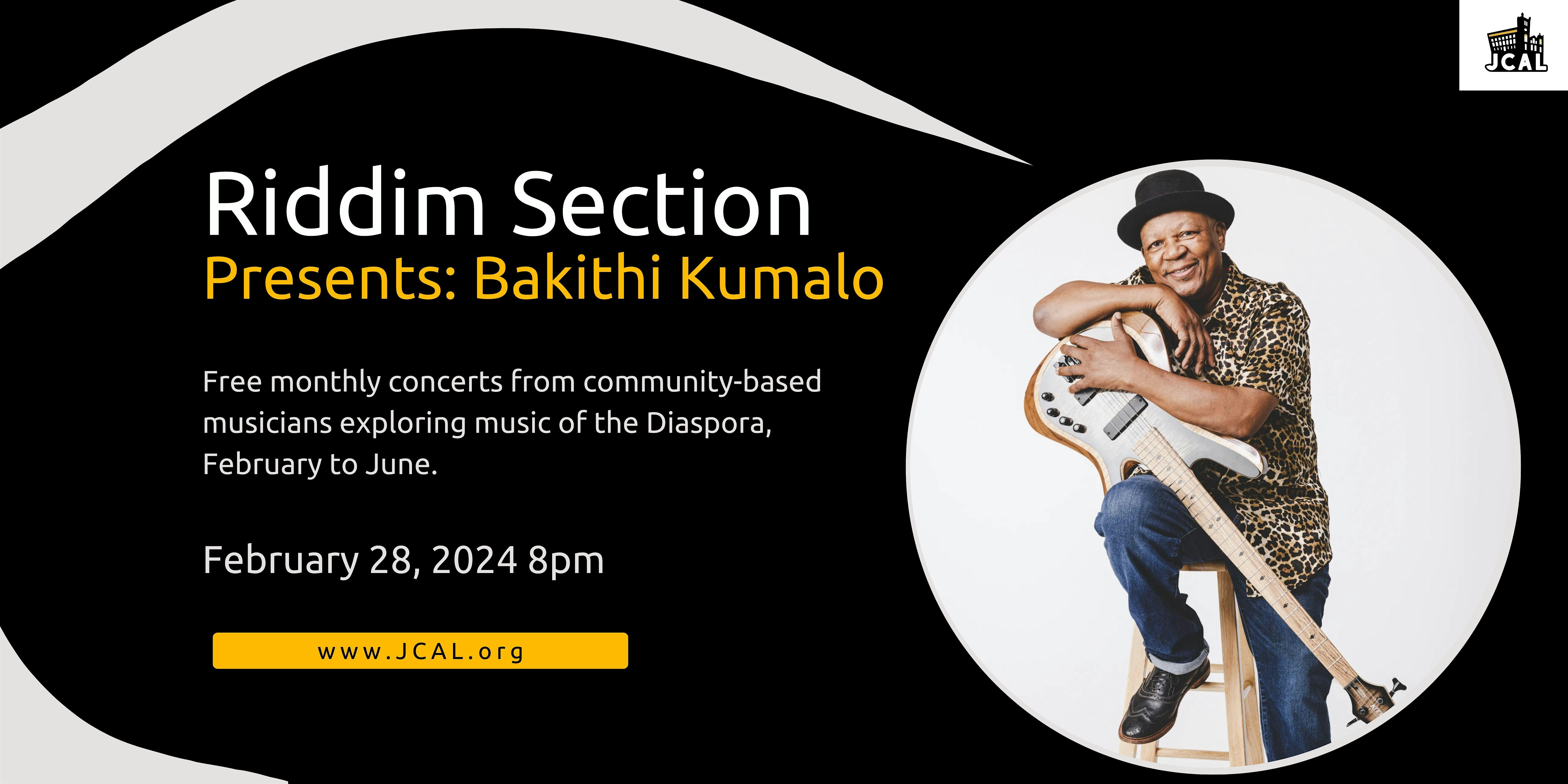
Riddim Section Presents: Bakithi Kumalo and Friends
February 28, 2024 - 8:00 PM
Jamaica Performing Arts Center
All tickets $20
The award-winning, multi-instrumentalist Bakithi Kumalo (Bah-Gee-Tee Koo-Ma-Low) is ranked among the top 50 bass players in the world by Bass Player Magazine. With a career spent touring alongside artists including Hugh Masekela, the Grateful Dead, Sting, Stevie Wonder, John Legend, Gloria Estefan, Derek Trucks, Miriam Makeba, and many others, his abilities extend to his solo work as a singer, percussionist, pianist, and songwriter—in addition to his bass playing—presenting a culmination of diverse influences from throughout his life.
We use cookies to enhance your experience. By continuing to visit this site you agree to our use of cookies. Learn more
« All Events
- This event has passed.
Bakithi Kumalo’s Graceland Experience Plus Insider Pre-show Chat
January 20 at 7:00 pm - 11:00 pm.

Insider Pre-show chat with legendary bassist Bakithi Kumalo who performed on Paul Simon’s classic Grammy award-winning “Graceland” album. Hear about Paul Simon’s controversial choice to record Graceland in South Africa and Bakithi’s experience of being a part of creating this iconic album.
There will be plenty of time for Q & A.
The Musical Performance
Bakithi Kumalo’s Graceland Experience always brings the most talented artists together for the ultimate musical experience that promises to move you in multiple ways. A joyful musical journey from the Roots and Rhythms of South Africa presented by bassist Bakithi Kumalo.
Found at the heart and soul of modern-day anthems that have shaped our sense of music and culture as we know it, award-winning, multi-instrumentalist Bakithi Kumalo (Bah-Gee-Tee Koo-Ma-Low) is ranked among the top 50 bass players in the world by Bass Player Magazine.
Born in the Soweto township of Johannesburg, South Africa, and surrounded by relatives who loved music and actively performed, with traditional African rhythms and acappella vocal groups all around him. Kumalo learned to follow the groove of the bass lines and developed licks based on the left-hand work of accordion players in the township bands. Landing his first job at the age of seven filling in for his uncle’s bass player, he continued to work as a session musician in South Africa during the 1970s and early 1980s and was soon recognized as a top session bassist, accompanying international performers during their South African tours.
Introduced to Paul Simon through producer Hendrick Lebone during recording sessions for the Graceland album in 1985, Kumalo traveled with Simon to New York to finish the record. Following accompaniment on the premier tour, he spent several years commuting between Soweto and New York City before permanently settling in the United States.
With a career spent touring alongside artists including Hugh Masekela, the Grateful Dead, Sting, Stevie Wonder, John Legend, Gloria Estefan, Derek Trucks, Miriam Makeba, and many others, his abilities extend to his solo work as a singer, percussionist, pianist, and songwriter—in addition to his bass playing—presenting a culmination of diverse influences from throughout his life. Touring regularly with Simon throughout his career, Kumalo has recorded with and performed alongside artists including Joan Baez, Cyndi Lauper, Hugh Masekela, Herbie Hancock, Tedeschi Trucks Band, Randy Brecker, Grover Washington Jr., Mickey Hart, and Disney’s The Lion King.
Best known for his groundbreaking bass line in “You Can Call Me Al,” pocket grooves from “Boy In The Bubble” and “Diamonds on the Soles of Her Shoes,” and his overall big bass sound, Kumalo has also released several solo albums. His most recent project had him working alongside producer Maxfeld Gast and Militia Hill to create What You Hear Is What You See.
- Google Calendar
- Outlook 365
- Outlook Live
For Bass Players Only
Bakithi kumalo.
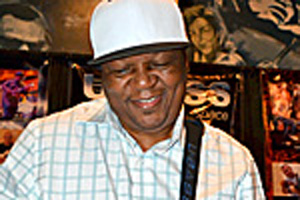
Long-time Paul Simon bassist talks to FBPO about his career, from the early days in South Africa to the most famous bass solo in pop music history!
Exclusive interview with FBPO’s Jon Liebman December 10, 2012
Bakithi Kumalo is a South African musician, best known for his longstanding position as bass player with Paul Simon. Most notably, Bakithi’s fretless slap bass interlude on Simon’s “You Can Call Me Al,” is perhaps the most famous bass solo in modern music history. Kumalo has also worked with Gloria Estefan, Herbie Hancock, Chaka Khan, Harry Belafonte, Cyndi Lauper and many others.
FBPO: Let’s start from the beginning. You have a very interesting background. Tell me about your musical upbringing.
BK: I was born into a musical family and it was chaotic because my mother was a singer, my uncle played saxophone and my father, who left me when I was a year old, was a guitar player. I just kind of grew up around the music, including church music. People used to walk around the street, singing and playing drums from different tribes. I was exposed to much South African traditional music.
FBPO: You were in Soweto, right?
BK: I was born in Soweto, yes, and then moved from one township to another.
FBPO: How did you become a bass player?
BK: I became very interested at an early age, when I saw my uncle’s bass player when they practiced at home. I just liked what he was doing. Every time they’d leave the house, I would mess around with his bass. It was very attractive and I liked it because it had such a big sound that I could feel in my chest. When he’d come back another day, he would show me a couple of things. I was young and he would talk to me about things like, “This is the string, the tuning pegs” and all that stuff.
Then at the age of 10, I started to join the local bands. The first instrument I played was guitar, classical style. I played with a band, not for a very long time, maybe for a month. Then the bass player quit the gig, so I moved to bass and just stayed with it. I also took to playing the saxophone. My uncle was playing a lot of saxophone, so he would teach me to play the alto saxophone. Between the alto and the bass, I played everything.

BK: The music that was played in South Africa was mostly American music, like Motown and jazz. In South Africa, we also had a lot of “kwela” music, which is almost like swing, with a pennywhistle. And then a guy would play a plywood box, like a tea box, and there would be one string and a stick and a guy would move the stick and get different notes. It’s almost like the big bass with one string. There’s also the a cappella, like Ladysmith Black Mambazo, which is more like voices, and that helped me a lot with my fretless playing. That was before I even knew about Jaco’s fretless.
Some of my great friends used to buy CDs in the States and I paid a lot attention to all the bass players, like Alphonso Johnson. I was like, “Wow, this sounds like the bass that I’m playing.” It was almost like the human voice. That really helped to stay with the fretless. The only bass I owned was the one my mother bought for me. It was the cheapest bass and I got stuck with it.
I remember listening to Weather Report’s Heavy Weather record and trying to play “Teen Town” and “Havona.” There were things that I could just not understand or play, but I loved the songs. James Jamerson was another influence, playing on all those Motown records. I was really listening to a lot of that stuff and then tried to put that in the African music, not just the bass notes, but learning where to put the “one” and how to get that feel.
FBPO: I guess meeting Paul Simon changed your life forever in many ways. How did that meeting come about?
BK: It changed my life completely. As a young player, I really didn’t focus on what was going on in South Africa, but I mostly focused on the music that was coming from America. That was the music that was in my heart. And then when Paul Simon went to South Africa, I was ready because I had spent a lot of time in Zimbabwe and I spent a lot of time in Zululand, just to get that traditional, original stuff. So when Paul was putting Graceland together, I was ready for it. Also, listening to the guitar player helped. Most guitars play the melodies, so on the Graceland record, I just borrowed some stuff from the guitar player, Ray (Phiri), and then used the two bars off it. There was a lot of paying attention and listening.
FBPO: It’s hard to believe that that album is 25 years old. It doesn’t sound like any of the Simon & Garfunkel records. What was Paul looking for when he went to South Africa? What was he trying to say? Was it an Apartheid thing?
BK: No, here’s the thing: Paul had a friend in South Africa who was a producer and this guy sent Paul a tape of the Boyoyo Boys. Paul had never heard that township music before and he listened to the stuff and it just took him. He said he used to listen to that stuff all day long, over and over, and never get tired of it. He would go to sleep listening to that music.
Then one day he said, “Let me fly to South Africa and meet up with these musicians and just go there because the music is very interesting.” So he came to South Africa and they booked the studio and called the musicians to come to the studio and just jam with Paul. Paul told us to play anything.
This music was not about what was going on in South Africa, it was about love and romance. It had nothing to do with the Apartheid of South Africa. It was the rhythms that got Paul. I was thinking maybe I would get to play some American music. I played my fretless and we grooved with the songs and he just loved everything we played.
So that’s how Graceland came about. Then it turned out to be a problem because people thought that he went to South Africa to rip off the musicians, while of course, businesswise, some other people didn’t understand what was going on. I told Paul I really wanted to go to America and that’s when he took me from South Africa to America and finished the rest of Graceland .

BK: There’s a story! The day we recoded it was my birthday, May 10, 1986. In the studio, we played the groove and then there was that break and Paul said, “Let’s take a break. Let’s break for lunch.” And I said, Paul, it’s my birthday today. Can I just play a little bit more on the part where there’s a break?” And Paul said, “Go ahead. If it’s good, we’ll keep it.”
I wasn’t slapping the whole thing, but when it came to that break, I just used my slapping because in the studio, the fretless sounded unbelievable! When I started to slap the bass, the engineer recognized that idea and came up with the backwards tape effect. Then he took the two bars and looped it. After we came back from lunch he said, “Listen to this!” He was going crazy! That engineer was a big part of my bass lines. It turned out to be a great piece.
FBPO: I bet most people don’t know you also play upright bass, as well as drums and keyboards and all kinds of percussion instruments. Every time I see you, though, you’re playing a Kala ukulele bass. When did you start playing that?
BK: I think it was four years ago. I was at Bass Player Live! in Los Angeles and I met my longtime friend Rick Carlson and he said to me, “Hey man, I’m working with this company now. Check out their basses.” So I looked at their basses and I said,” You know, I don’t play ukulele, man!” But he told me to just play it anyway. So I played the bass, thinking afterwards I would give it to my daughter. I just couldn’t stop playing it! I just kept playing it because it was very interesting. The strings, the length of the bass. And the sound was unbelievable! And I just kept playing it and playing it. A lot of other people are now interested in it, too. Abe Laboriel is now playing one.
FBPO: You did something together with Abe at the most recent Bass Player Live! , didn’t you?
BK: We do a duo. We’re still building up our duo because a lot of people tell me we have a similar style. Now we’re both playing the ukulele bass. “Hutch” Hutchinson of Bonnie Raitt’s band is playing one too. So is Pops Powell of the Crusaders. Reggie Hamilton plays one. It’s really good to have if you want to play a lot of different things. If you want to play reggae or jazz, for example. I use it for all my warm-ups, then I play it on the gig. I played it on the Paul Simon tour, the solid body and then the acoustic one.
FBPO: What kind of range do those instruments have? Is it the same as a conventional bass or is it a shorter range?
BK: It’s a shorter range, It’s the same as the bass in G-D-A-E, but it’s much shorter. I think it’s maybe a 22-fret.

Bakithi, with FBPO’s Jon Liebman, he NAMM Show, 2011
FBPO: Well, that’s plenty. That’s the same as most basses, so you can really go up there.
BK: Yeah, you can go up there. But you know, when I teach the little people, because of their little hands, they can play the higher notes. For me, though, sometimes when I play the higher notes, I play in two frets because as you go higher, the frets get thinner. The instrument is really great, though. They’re improving it all the time. I think there’s a new one with steel strings that you can slap on.
FBPO: Tell me about some of your solo stuff. Didn’t you and your wife do a couple of children’s albums?
BK: Yes, my wife, Robbi Hall Kumalo, was doing a lot of stuff with kids and that’s how I got involved. She’s a storyteller and she’s worked with a lot of people. She worked with Rod Stewart, Aretha Franklin, Mary J. Blige, Chaka Khan and Diana Ross. She’s doing this project with kids, going to schools and telling stories and sometimes writing songs. The kids come in and tell my wife their stories and their problems, then they’ll build up a song. So I got involved with that. I like going to schools at nine o’clock in the morning and working with the kids. And when they see my instrument, they go crazy like, “Wow, a big bass!” Since we started the project, we did about three records.
FBPO: What else is keeping you busy these days?
BK: My children.
FBPO: How many children?
BK: I have three kids. My oldest son is in South Africa with my granddaughter and here I’ve got two daughters, 14 and 16. Each one plays about five instruments. My oldest daughter plays trombone, bass, guitar and piano and the little one plays big bass, little bass, piano, violin and viola and she sings. We’re very busy.
FBPO: How about the future? What else would you like to do that you haven’t already accomplished?
BK: I’m learning every day. I’m still not there yet. I’m still finding my way. I made this change to come to America—I spent 25 years in Africa and then 25 years in America. I’m still learning. No matter what, you just learn all the time. I get a session and I go to the studio and I become a student because they’ll tell me what to do and then I just put the feel in and I make things happen. I’m still going and I’m still searching because I feel like I haven’t reached the point yet. I can push this over to the next generation and hopefully go all over the world and teach the kids something.
FBPO: Great attitude. Last question, Bakithi: What would you be if you weren’t a bass player?
BK: Good question! Two things: a doctor and a teacher. Growing up in South Africa, I wanted to be a doctor because I care about health and I care about people. I ended up playing in hospitals and playing for kids and donating my time to them, letting them touch the instrument. Then I look at their smiles and I think, “You know, I hope this helps you. Maybe this instrument is the medicine for you.” I always wish I was a doctor so I could help these kids and give them medicine so they can get out and leave this place for a better place. Or a teacher, so they can have something. Like if you teach them to catch a fish, they can eat and then teach the next generation. It just goes on and on.
See our exclusive FBPO interviews with Reggie Hamilton and Alphonso Johnson, both of whom are mentioned here: [table id=36 /]
Related Posts
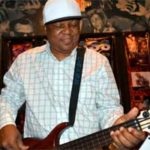
Acclaimed sideman finally records his own solo album Exclusive video interview with FBPO’s Jon Liebman…
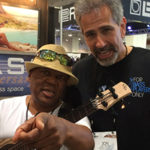
First-hand account of touring with Paul Simon and Sting, what he loves about NS Design…

Daughtry bassist talks about his contributions to their new album Exclusive video interview with FBPO’s Jon Liebman…
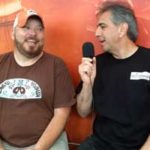
Jericho Woods bassist talks of his bass heroes, Same Ol’ Dirt record and his never-ending…
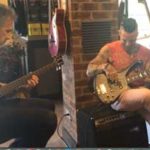
From Suicidal Tendencies and Infectious Grooves to Daughtry and Bobby Church Band, hard rocker tells his…

Bass player, gadget freak goes one-on-one with FBPO to talk about life, career … and…
Leave a Reply Cancel reply
Your email address will not be published. Required fields are marked *
- Privacy Overview
- Strictly Necessary Cookies
This website uses cookies so that we can provide you with the best user experience possible. Cookie information is stored in your browser and performs functions such as recognising you when you return to our website and helping our team to understand which sections of the website you find most interesting and useful.
Strictly Necessary Cookie should be enabled at all times so that we can save your preferences for cookie settings.
If you disable this cookie, we will not be able to save your preferences. This means that every time you visit this website you will need to enable or disable cookies again.

- Gift Subscriptions
- Jazz School
- Master Class
- Pro Session
Reviews Music, Video & Books
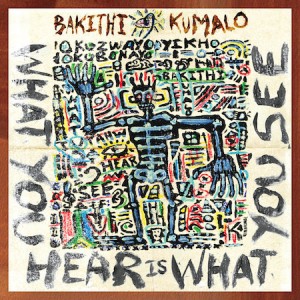

Bakithi Kumalo
(ropeadope).
By j. poet | Published December 2021
Paul Simon introduced South Africa’s Bakithi Kumalo to American audiences when he hired him to play bass on his seminal Graceland album. Already a well-known session player in his home country, Kumalo joined Simon on the Graceland tour and soon became a sought-after sideman in the United States. He went on to add his distinctive sound to records by Cyndi Lauper, Grover Washington Jr., Mickey Hart and The Lion King soundtrack.
On What You Hear Is What You See , his sixth album as a leader, Kumalo collaborates with 31 musicians from across the jazz and world music spectrum. The arrangements present a fusion of the many sounds he’s explored in his career.
“Zululand Nation” opens with four percussionists playing crisp, intertwining rhythms to support Kumalo and Nonhlanhla Kheswa, as they sing a traditional African tune. As the vocals fade, pianist Oscar Williams and vibraphone player Christos Rafalides exchange high, sparkling arpeggios that complement Kumalo’s subtle bass line and Alex Silver’s saxophone solo.
What You Hear Is What You See: What You Hear Is What You See, Zululand Nation, Desert Walk, Nomvula, Let’s Be One, Happy Village, Electric Flow, Nice Day, Long Story Short, Peaceful Water. (46:53) Personnel: Bakithi Kumalo, bass, vocals, piccolo bass, U-bass, keyboards, Aerophone, organ, kalimba, marimba programming, percussion; Tshila, voice; Maxfield Gast, flute, soprano, alto and tenor saxophones, EWI, keyboards, chimes Aaron Rimbui, electric and acoustic piano; Omar Haddad, guitar; Nonhlanhla Kheswa, vocals; Alex Blade Silver, tenor saxophone, EWI; Oscar Williams II, piano; Joel Guzman, accordion; Christos Rafalides, vibraphone; Pablo Batista, Ilubache drum; Jason Kronick, drums; Antonio Sánchez: drums; Steven Kirsty, soprano and tenor Saxophones; Tim Motzer, guitar; Mike Pietrusko, drums, congas, percussion; Alyson Faith, vocals; William Smith, electric piano; Oz Noy, guitar; Poogie Bell, drums; Biodun Kuti, vocals, guitar, bass; Alex Blade Silver, tenor saxophone, EWI; Shawn Hennessey, Hadjira drum, Surdo drum, shakers; Dacia Gypsy, vocals; Jeremy Grenhart, Fender Rhodes, keyboards; Rodney Harris, drums; Steven Kirsty, tenor saxophone; Gregory McMullen, guitar; Patrick Graney, cajon, hand claps, tap dancing; Jamey Haddad, Hadjira drum; Diego Urcola, trumpet; William Smith II, electric piano; James Rouse, drums. Ordering Info: ropeadope.com

Kenny Garrett & Svoy Look Inside
Subscribe print | digital | ipad.
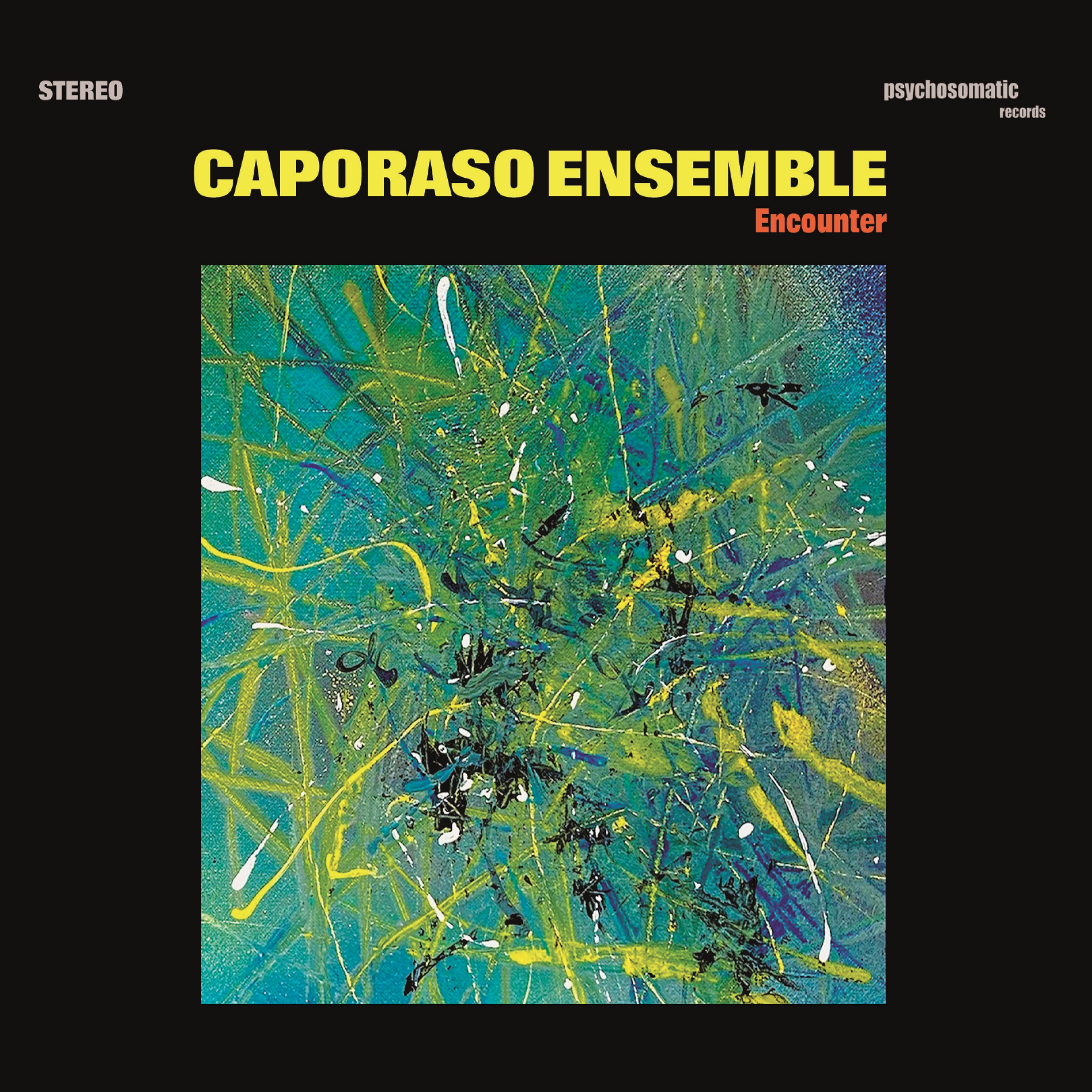
Caporaso Ensemble
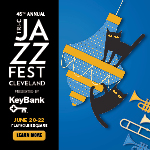
- Print | Digital | iPad
- Back Issues
- DB Wear & Books
- Manage My Account
- Renew Subscription
- Customer Service
Sign up for our e-Newsletter
Get monthly updates right in your inbox. learn more, you can unsubscribe anytime. privacy by safesubcribe, stay connected.
About | Terms of Use | Privacy Copyright © 2024 Maher Publications. All rights reserved. DownBeat is an internationally registered trademark of Maher Publications.

- Shows and events
- Box office information
- COVID protocols
- Group sales
- Parking and directions
- Seating map
- 23-24 Sponsors
- Corporate partnerships
- 2023 Members
- Space rental
- Board of Directors
- Career opportunities
- In the news
- Internship opportunities
- Our history
- Our mission
- Take a 360° tour of UPH
- The Eddies Hall of Fame
- Volunteer opportunities
- Mission & Values
- Internship Opportunities
- Volunteer Opportunities
Bakithi Kumalo & The Graceland Experience
Posted December 16, 2019 by Jose Martinez
Bakithi Kumalo is a South African bassist, composer, and vocalist. He is most known for his fretless bass playing for Paul Simon for over 30 years and on the 1986 album Graceland, in particular the bass run on “You Can Call Me Al”.
Mr. Kumalo is going on tour performing with The Graceland Experience. This unique show will feature Bakithi performing the entire Graceland record, one of Paul Simon’s biggest, along with a selection of world music as well.
Click here for updated Covid protocols
Stay in the Know Subscribe to Our Newsletter.
Type to search
- Record at THE STUDIO by Rolling Stone India at Creatorland Mumbai
Bakithi Kumalo: Africa Calling With a Global Groove
The South African bassist and composer’s new album ‘What You Hear Is What You See’ is global as well as rooted in traditional rhythms, tones and sounds
South African bassist-composer Bakithi Kumalo. Photo: Courtesy of the artist
When someone like Bakithi Kumalo pens down his travel memories – the sights and sounds from his journeys across the world – it has to be an exhilarating experience. Over the decades, Kumalo has become an ambassador of music with a truly global face. The very successful Paul Simon ‘s Graceland album, and his intuitive bass line on the track “You Can Call Me Al” is music folklore.
Kumalo has worked with a stellar list of artists; Joan Baez, Cyndi Lauper, Herbie Hancock, Tedeschi Trucks Band , Randy Brecker and the breadth of his experience comes to the fore in his new album What You Hear Is What You See , which besides the overwhelming African influence and sounds, has tracks which lead you down the hip-hop trail and offers serious jazz runs to leave you breathless.
The album begins with the title track, featuring a spoken word poem by Ugandan-born singer-songwriter Tshila, wrapped with sounds of the African savannah. Ace saxophonist and composer Maxfield Gast, who has produced this album along with Kumalo and co-written four of the tracks, announces his presence brilliantly with the alto sax on the opener. “The cry for emancipation holding footsteps of glory walking this land that feeds the scorpion and the elephant alike…” The track wakes you up to Mama Africa and the music thrills you that there is more to come.
On “Zululand Nation,” Kumalo masterfully layers myriad sounds and polyrhythms on an African/Latin groove and the very talented Nonhlanhla Kheswa joins in singing a traditional African melody. Pianist Oscar Williams II gives this track total repeat value.
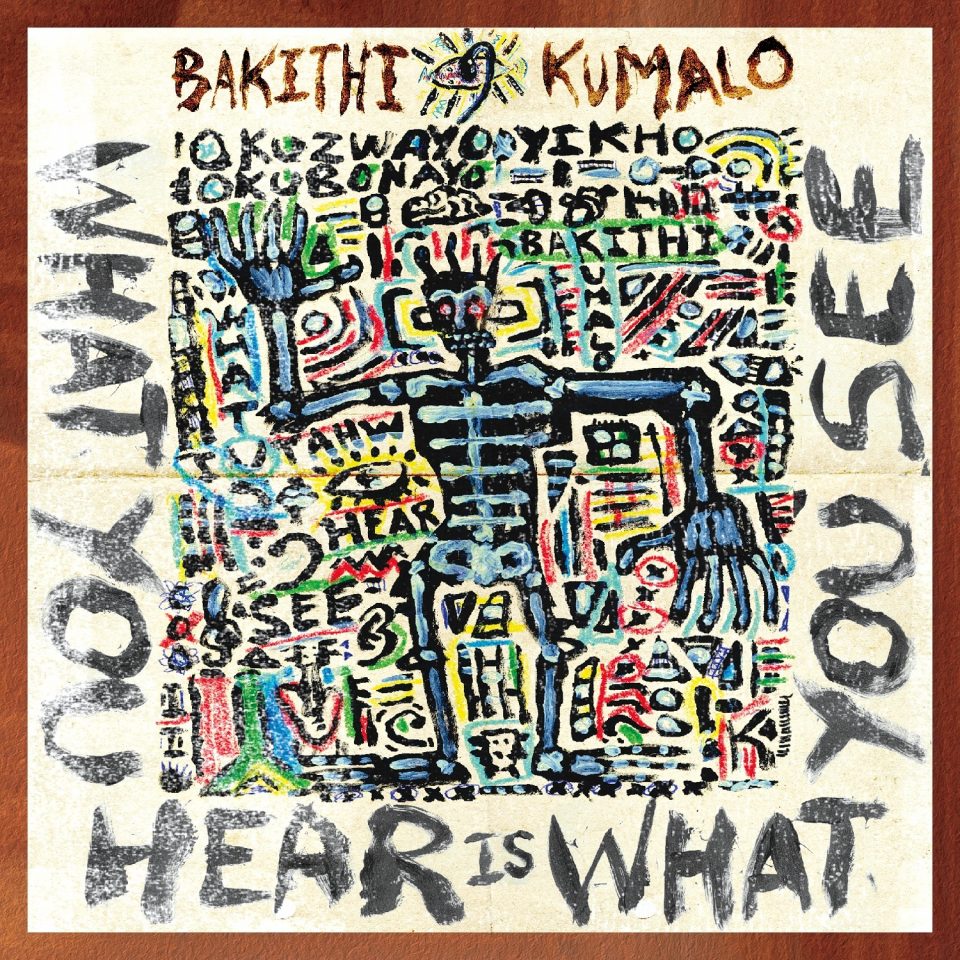
With “Desert Walk,” Kumalo transports us to some smoky Moroccan kasbah, joined by Steven Kristy on the saxophones, Williams II on the piano, and Jason Kronick on the drums. This track is the story of discovering and learning the Gimbre, a traditional North African bass.
There are elegiacal moods (“Nomvula,” a piccolo bass-aided tribute to Kumalo’s sister who was tragically lost to Covid last year) as well as one of familial ties, as heard on “Let’s Be One.” The latter features Alyson Faith on vocals and draws from his upbringing in the Soweto township of Johannesburg, surrounded by a large family and music. Kumalo brings marimba grooves to “Happy Village,” which is punctuated by traditional vocals and voice samples.
The seventh track “Electric Flow” is a sumptuously rich track because it flows like an edgy hip-hop/jazz composition, featuring Dacia Gypsy on vocals. This track exemplifies well why five-time Grammy Award winner Kumalo is among the top bass players in the world, his distinctive bass style – slapping and sliding gloriously – melding well into a modern sound. The track also features producer Gast on sax and flute, drummer Rodney Harris, Jeremy Grenhart on Fender Rhodes and keys, plus Nigerian guitar ace Biodun Kuti, a member of Paul Simon’s touring band.
Kumalo digs into his jazz-leaning influences on “Nice Day,” a smooth, pacy track which is executed brilliantly by tenor saxophonist Steven Kirsty with guitarist Gregory McMullen, a masterful Jason Kronick on drums and Oscar Williams II returning on piano. Kumalo sounds sharp amidst seemingly understated elements on this track. After hip-hop, there’s more experimentation on “Long Story Short,” featuring Kenyan pianist Aaron Rimbui, and Gast on soprano sax. And then there are the chants, the hadjira drum, and the hand claps to make it a real jam. Kumalo calls in trumpeter Diego Urcola for the closing track “Peaceful Water,” while also leading with an appropriately fluid bass solo.
What You Hear Is What You See is a treat for those who love global music that also keeps its deep roots intact, anchored in traditional rhythms, tones and sounds. Kumalo paints a rich picture of the sounds and voices of the African continent even as he spends the second part of the album showcasing his jazz compositions and his mastery of the bass guitar. He has brought together some very talented people together and weaved their talent with absolute solidity and beauty. Pick up this album and you will see what you hear.
Stream the album below. Buy here .
- Bakithi Kumalo
Upcoming Gig Calendar!
- June 5th, 2024 LiveBox ft Karnivool, Space Is All We Have in Gurugram at Imperfecto Patio Buy Tickets
- June 6th, 2024 Loka + Special Guests in Mumbai at antiSOCIAL (Lower Parel) Buy Tickets
- June 7th, 2024 LiveBox ft Karnivool, What Escapes Me in Kolkata at Five Mad Men Buy Tickets
- June 7th, 2024 Outrage Festival presents Slayer Tribute by Capital Metal Project in New Delhi at Bira 91 Taproom Buy Tickets
- June 7th, 2024 Hessian Aggression Vol. 7 ft Noria, Dwar in Shillong at The Evening Club
View Complete List
Editor's Pick

Rolling Stone
- News & Updates
- Gig Calendar
Connect With Us
Subscription.
Get The Magazine

- Write For Us
- Best New Music
Select Page
Bakithi Kumalo | Homeward Bound Tour
Posted by iBass | Jun 1, 2018 | News | 0
Bakithi Kumalo & Phil Jones Bass
Legendary bassist Bakithi Kumalo has selected a Phil Jones Bass touring rig for the Paul Simon’s Homeward Bound Tour, also being billed as his farewell tour. Bakithi has been touring with Simon since the Grammy Award winning album, Graceland, which included his prodigious bass solo break in the song “Call Me Al”. Kumalo is often credited for creating a new style of bass playing on the album. Kumalo will be turning to the PJB D-1000 amp and C-9 speaker enclosures as his stage rig. He prefers the D-1000 because it combines high power (1000 watts) with PJB’s signature tone in a lightweight (5.3 lbs) box. The C9 cabs handle 900 watts each and are comprised of nine 5-inch PJB Piranha Chrome Dome speakers. If we ask very nicely, perhaps Bakithi will show us just what it can do. www.pjbworld.com
Related Posts
Dutch double bass festival 2019.
May 7, 2019
Ashdown SZ Funk Face
March 9, 2017
Ampeg SVX 2 for AmpliTube
September 6, 2017
Petros Klampanis | Chroma
March 14, 2017
Leave a reply Cancel reply
Your email address will not be published. Required fields are marked *
Recent Posts
Recent videos.
- Zander Zon | Meditation in E
- Martin Sims | Enfield Guitars
- Doug Wimbish | Living Colour
- Submotion Orchestra: Time Will Wait (acoustic)
- Fodera Guitars

View prices for your travel dates
- Excellent 0
- Very Good 0
- English ( 0 )
Own or manage this property? Claim your listing for free to respond to reviews, update your profile and much more.

IMAGES
COMMENTS
BAKITHI KUMALO LEGENDARY, AWARD-WINNING SOUTH AFRICAN BASSIST . Praise for his work... South African fretless bassist, multi-instrumentalist, producer, and songwriter that has played on 4 Grammy-Award-winning albums, with credit on Paul Simon's Graceland album for iconic bass lines in songs "You Can Call Me Al," "Boy in the Bubble," and ...
Three minutes and 44 seconds into Paul Simon's You Can Call Me Al is a two-bar bass guitar solo that has confounded as many bassists as it has inspired. "That was my idea," said Bakithi Kumalo of the wildly descending lick. "We were recording that song on my birthday, and there was space to fill, so Paul said, 'Go ahead, Bakithi, do what you like.'
Follow Bakithi Kumalo and be the first to get notified about new concerts in your area, buy official tickets, and more. Find tickets for Bakithi Kumalo concerts near you. Browse 2024 tour dates, venue details, concert reviews, photos, and more at Bandsintown.
Bakithi Kumalo was born in the Soweto township of Johannesburg, surrounded by relatives who loved music and actively performed. ... and after the accompanying concert tour, "spent several years ...
This one-night-only concert will feature a tribute band that includes Bakithi Kumalo, best known for his fretless bass playing on Simon's 1986 album Graceland. ... Tickets are $35 per person or $30 for theatre members. Any remaining tickets will be sold for $45 at the door on the night of the show (if available). All seating is general admission.
Details. Bakithi Kumalo's Graceland Experience always brings the most talented artists together for the ultimate musical experience. A joyful musical journey from the Roots and Rhythms of South Africa presented by legendary bassist Bakithi Kumalo who performed on Paul Simon's classic Grammy award winning "Graceland" album. This lineup ...
Is there a more fascinating bassist's journey than the one undertaken by Bakithi Kumalo? From a scrappy beginning on the streets of Soweto, South Africa, where he embraced music amid much personal and political strife, to meeting Paul Simon and coming to the U.S. to record Graceland — a musical and social landmark that also ranks as a desert-island bass disc, thanks to Bakithi's ear ...
Bakithi Kumalo (/ b ɑː ˈ ɡ iː ˈ t iː k uː ˈ m ɑː l oʊ /; born 10 May 1956) is a South African bassist, composer, and vocalist. Kumalo is best known for his fretless bass playing on Paul Simon 's 1986 album Graceland , in particular the bass run on " You Can Call Me Al ".
This one-night-only concert will feature Graceland Experience, a tribute band that includes Bakithi Kumalo, who is best known for his fretless bass playing on Simon's 1986 Graceland album. ... Online tickets are $35 per person or $30 for theatre members. Any remaining tickets will be sold for $45 at the door on the night of the show (if ...
About. JCAL's free music series presents music from across the diaspora. The award-winning, multi-instrumentalist Bakithi Kumalo (Bah-Gee-Tee Koo-Ma-Low) is ranked among the top 50 bass players in the world by Bass Player Magazine. With a career spent touring alongside artists including Hugh Masekela, the Grateful Dead, Sting, Stevie Wonder ...
Join us at 7 pm on January 20th for an Insider Pre-show chat with legendary bassist Bakithi Kumalo who performed on Paul Simon's classic Grammy award-winning "Graceland" album. Hear about Paul Simon's controversial choice to record Graceland in South Africa and Bakithi's experience creating this iconic album. ... Find Tickets. 3721 ...
January 20@7:00 pm - 11:00 pm. Insider Pre-show chat with legendary bassist Bakithi Kumalo who performed on Paul Simon's classic Grammy award-winning "Graceland" album. Hear about Paul Simon's controversial choice to record Graceland in South Africa and Bakithi's experience of being a part of creating this iconic album.
Bakithi Kumalo's bass playing can be found in the heart and soul of the modern day anthems that have shaped our sense of music and culture as we know it. Ranked among the top 50 bass players in the world by Bass Player Magazine, Bakithi Kumalo is a five-time Grammy Award winning multi-instrumentalist. Born in the Soweto township of ...
December 10, 2012. Bakithi Kumalo is a South African musician, best known for his longstanding position as bass player with Paul Simon. Most notably, Bakithi's fretless slap bass interlude on Simon's "You Can Call Me Al," is perhaps the most famous bass solo in modern music history. Kumalo has also worked with Gloria Estefan, Herbie ...
Bakithi Kumalo What You Hear Is What You See (Ropeadope) By j. poet | Published December 2021. Paul Simon introduced South Africa's Bakithi Kumalo to American audiences when he hired him to play bass on his seminal Graceland album.Already a well-known session player in his home country, Kumalo joined Simon on the Graceland tour and soon became a sought-after sideman in the United States.
Bakithi Kumalo is a South African bassist, composer, and vocalist. He is most known for his fretless bass playing for Paul Simon for over 30 years and on the 1986 album Graceland, in particular the bass run on "You Can Call Me Al". Mr. Kumalo is going on tour performing with The Graceland Experience.
Artwork for Bakithi Kumalo's album 'What You Hear Is What You See.'. With "Desert Walk," Kumalo transports us to some smoky Moroccan kasbah, joined by Steven Kristy on the saxophones, Williams II on the piano, and Jason Kronick on the drums. This track is the story of discovering and learning the Gimbre, a traditional North African bass.
Legendary bassist Bakithi Kumalo has selected a Phil Jones Bass touring rig for the Paul Simon's Homeward Bound Tour, also being billed as his farewell tour. Bakithi has been touring with Simon since the Grammy Award winning album, Graceland, which included his prodigious bass solo break in the song "Call Me Al". Kumalo is often credited ...
Moscow Oblast ( Russian: Моско́вская о́бласть, Moskovskaya oblast) is a federal subject of Russia. It is located in western Russia, and it completely surrounds Moscow. The oblast has no capital, and oblast officials reside in Moscow or in other cities within the oblast. [1] As of 2015, the oblast has a population of 7,231,068 ...
Krasnoznamensk, Moscow Oblast. Entrance to Krasnoznamensk. Flag. Coat of arms. Krasnoznamensk ( Russian: Краснознаменск) is a closed town in Moscow Oblast, Russia. In 2010, 36,103 people lived there.
Elektrostal. Elektrostal ( Russian: Электроста́ль) is a city in Moscow Oblast, Russia. It is 58 kilometers (36 mi) east of Moscow. As of 2010, 155,196 people lived there.
Alliance. 1 review. #1 of 1 small hotel in Zheleznodorozhny. Gidrogorodok St., 3, Zheleznodorozhny 143982 Russia. Write a review. Check availability. Have you been to Alliance?